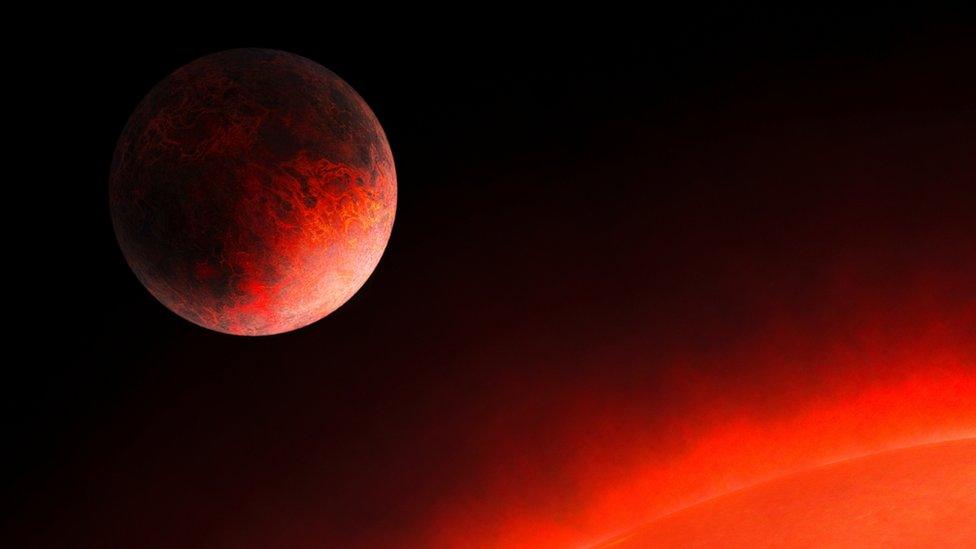Space: Astronomers have found a planet with 8-hour year
- Published
- comments

Artist's impression of the GJ 367b planet
If you've wondered where the last year has gone, imagine what it would feel like if a year was just eight hours.
That's what it's like on the newly discovered exoplanet - that's a planet that orbits a star outside of our solar system - named GJ 367b.
Whereas the Earth's orbit around the Sun is just over 365 days, GJ 367b orbits its own star in around eight hours.
It's roughly the size of the planet Mars and half the mass of Earth making it one of the lightest of the exoplanets.
Exoplanets are planets that orbit a different star than our Sun - in a different solar system to the one we are in.
Even though scientists thought for a long time that they must exist, it was only in 1992 that the first exoplanet was discovered.
Its surface temperature reaches up to 1500 degrees Celsius - that's hot enough for metals to melt - so it's definitely not a place humans could live.
The team from German Aerospace Centre found the exoplanet in 2019 using data gathered by NASA's Transiting Exoplanet Survey Satellite (TESS), which launched in April 2018 to look for planets.
TESS hunts for planets by monitoring the brightness dips when a planet passes in front of its star.
Since its discovery, researchers have been able to find out more about the planet by using a special instrument which measures radial velocity installed on the European Southern Observatory's 3.6-meter telescope in Chile.
The measurements allowed the study team to calculate the exoplanet's mass and density, which is higher than Earth's.
"From the precise determination of its radius and mass, GJ 367b is classified as a rocky planet," Kristine Lam of the German Aerospace Centre said.
"It seems to have similarities to Mercury. This places it among the sub-Earth sized terrestrial planets and brings research one step forward in the search for a 'second Earth'."
- Published12 March 2020
- Published2 April 2020
- Published18 November 2021
